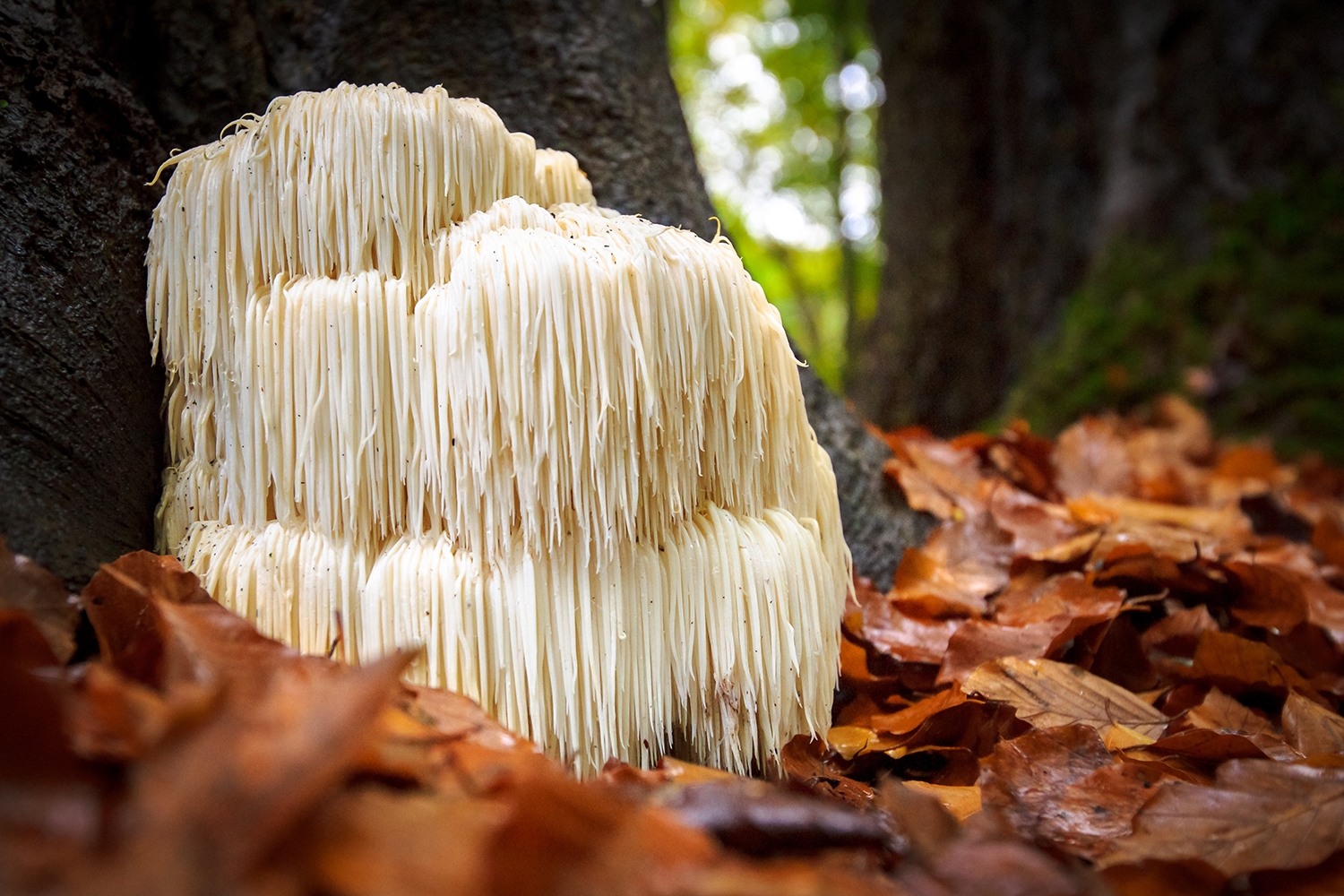Over the past decade, the lion’s mane mushroom (Hericium erinaceus) has captured attention in the herbal and natural wellness sphere, fascinating researchers and health enthusiasts with its potential cognitive benefits. The scientific name “Hericium” means “hedgehog.” Still, scientists dubbed the mushroom “lion’s mane” because the fruiting body looks like a shaggy lion’s mane, which also resembles the quills of a hedgehog.
This unique mushroom is found mostly in North America, Europe, and Asia and has a long history of use in natural medicine. Recent scientific studies have delved into the intricate mechanisms through which lion’s mane influences the brain, offering promising insights into its neuroprotective and cognitive benefits.
Lion’s mane is rich in bioactive compounds, such as hericenones and erinacines, believed to underlie its therapeutic effects. These compounds have demonstrated the ability to stimulate the production of nerve growth factor (NGF), a critical protein essential for the development, maintenance, and survival of neurons in both the brain and the body as a whole.
In the brain, NGF actively supports neurogenesis, the process of forming new neurons, and facilitates the growth and differentiation of nerve cells. Its role extends beyond the brain, influencing the health of peripheral nerves and impacting sensory and motor functions. Disruptions in NGF levels are associated with potential neurodegeneration. A comprehensive understanding of NGF’s influence provides valuable insights into potential therapeutic approaches.
Lion’s Mane for Brain and Nervous System Wellness
The potential of lion’s mane to stimulate nerve growth factor (NGF) has spurred increased studies into its cognitive benefits. While human studies are still in the early stages, preliminary results suggest possible applications for cognitive enhancement and neuroprotection. Lion’s mane mushroom’s medicinal properties, including potent antioxidants and anti-inflammatory characteristics, contribute to its neuroprotective effects. It may support optimal nerve cell wellness by scavenging free radicals and supporting the regulation of inflammatory responses.
Beyond cognitive benefits, the fungus shows anxiolytic and antidepressant properties, promising a multifaceted approach to mental health. Animal studies hint that it may positively influence neurotransmitters like serotonin and dopamine. While additional research is necessary, these findings provide a glimpse into the potential holistic effects of lion’s mane on mental well-being.
Lion’s mane is emerging in the natural wellness and dietary supplement areas as a captivating natural therapy, drawing intense scientific scrutiny for its ability to promote neurogenesis, stimulate NGF production, and exert neuroprotective effects. While the field continues to evolve, early research points toward a promising future, as scientists unravel the mysteries of this remarkable mushroom and its potential to positively impact brain health.





